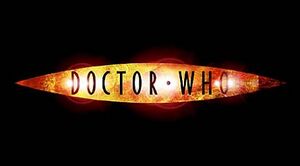Doctor Who Wiki: Difference between revisions
(→Featured Article: Changed to a new featured piece) |
|||
| Line 9: | Line 9: | ||
== Featured Article == | == Featured Article == | ||
[[Image:Logo2005.jpg|300 px|right|New Doctor Who television series logo]] '''Doctor Who''' is a science-fiction television programme that originally ran on the [[BBC]] from [[1963]] to [[1989]]. A [[Doctor Who: The TV Movie|television movie]] was co-produced with [[Universal Pictures]] in [[1996]], and a new season is being broadcast starting in March of [[2005]]. | |||
[[Image: | |||
''' | |||
''Doctor Who'' is about the adventures of a mysterious time-traveller known as [[the Doctor]]. The Doctor travels through space and time in a craft known as the [[TARDIS]], an acronym for "Time and Relative Dimensions in Space". The Doctor is usually accompanied by one or more [[list of companions|companions]], who are often attractive females. The tone of the programme varies from serious to comic, from gothic horror to showbiz camp. The original ''Doctor Who'' series is fondly remembered among the general public both for frightening monsters (such as the [[Dalek]]s and [[Sea Devil]]s) and cheap [[special effects]]. | |||
In [[2000]], in a poll of industry professionals, the [[Wikipedia:British Film Institute|British Film Institute]] voted ''Doctor Who'' #3 in a list of the [[Wikipedia:100 Greatest British Television Programmes|100 Greatest British Television Programmes]]. | |||
Revision as of 12:26, 8 March 2005
From the TARDIS Index File, the free Doctor Who reference.
Welcome aboard! This is the TARDIS Index File website, - or will be if this regeneration works out. The TARDIS Index File is a collaborative project to create the most definitive, accurate, and accessible encyclopedia and reference database for everything related to Doctor Who. The database is formatted in a Wiki structure which visitors can edit. If you're new to the TARDIS Index File, please join us! Visit the Community portal and the Help page and experiment with the Sandbox to learn how you can contribute to any article right now!
You may also wish to visit the two wikis which helped inspire the creation and format of this site, Wikipedia, a free, open source encyclopedia, and Memory Alpha, a wiki reference site devoted to the Star Trek universe.
Featured Article
Doctor Who is a science-fiction television programme that originally ran on the BBC from 1963 to 1989. A television movie was co-produced with Universal Pictures in 1996, and a new season is being broadcast starting in March of 2005.
Doctor Who is about the adventures of a mysterious time-traveller known as the Doctor. The Doctor travels through space and time in a craft known as the TARDIS, an acronym for "Time and Relative Dimensions in Space". The Doctor is usually accompanied by one or more companions, who are often attractive females. The tone of the programme varies from serious to comic, from gothic horror to showbiz camp. The original Doctor Who series is fondly remembered among the general public both for frightening monsters (such as the Daleks and Sea Devils) and cheap special effects.
In 2000, in a poll of industry professionals, the British Film Institute voted Doctor Who #3 in a list of the 100 Greatest British Television Programmes.

